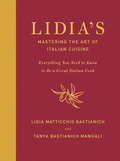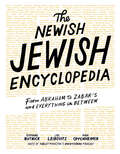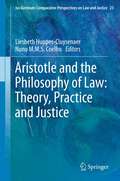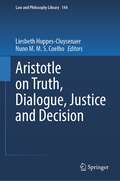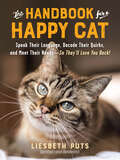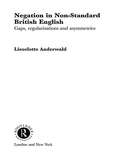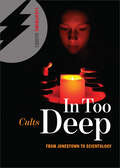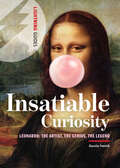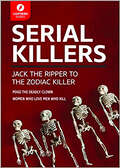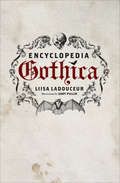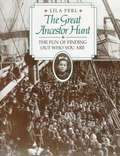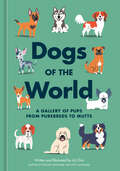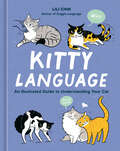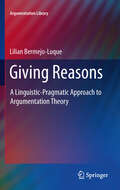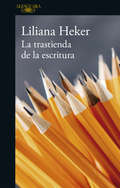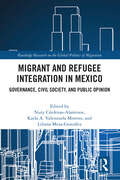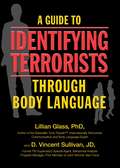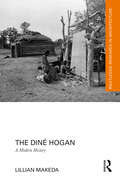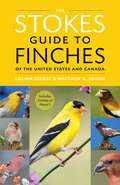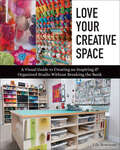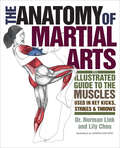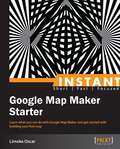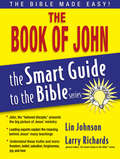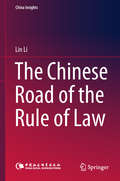- Table View
- List View
Lidia's Mastering the Art of Italian Cuisine: Everything You Need to Know to Be a Great Italian Cook
by Lidia Matticchio Bastianich Tanya Bastianich ManualiFrom the Emmy-winning host of Lidia's Kitchen, best-selling author, and beloved ambassador for Italian culinary traditions in America comes the ultimate master class: a beautifully produced definitive guide to Italian cooking, coauthored with her daughter, Tanya--covering everything from ingredients to techniques to tools, plus more than 400 delectable recipes. Teaching has always been Lidia's passion, and in this magnificent book she gives us the full benefit of that passion and of her deep, comprehensive understanding of what it takes to create delicious Italian meals. With this book, readers will learn all the techniques needed to master Italian cooking. Lidia introduces us to the full range of standard ingredients--meats and fish, vegetables and fruits, grains, spices and condiments--and how to buy, store, clean, and cook with them. The 400 recipes run the full gamut from classics like risotto alla milanese and Tagliatelle with Mushroom Sauce to Lidia's always-satisfying originals like Bread and Prune Gnocchi and Beet Ravioli in Poppy Seed Sauce. She gives us a comprehensive guide to the tools every kitchen should have to produce the best results. And she has even included a glossary of cuisine-related words and phrases that will prove indispensable for cooking, as well as for traveling and dining in Italy. There is no other book like this; it is the one book on Italian cuisine that every cook will need.From the Hardcover edition.
The Newish Jewish Encyclopedia: From Abraham to Zabar's and Everything in Between
by Mark Oppenheimer Liel Leibovitz Stephanie Butnick“[A] delightfully irreverent romp through Jewish history and culture.”—Library Journal, starred reviewAn Unorthodox Guide to Everything Jewish Deeply knowing, highly entertaining, and just a little bit irreverent, this unputdownable encyclopedia of all things Jewish and Jew-ish covers culture, religion, history, habits, language, and more. Readers will refresh their knowledge of the Patriarchs and Matriarchs, the artistry of Barbra Streisand, the significance of the Oslo Accords, the meaning of words like balaboosta,balagan, bashert, and bageling. Understand all the major and minor holidays. Learn how the Jews invented Hollywood. Remind themselves why they need to read Hannah Arendt, watch Seinfeld, listen to Leonard Cohen. Even discover the secret of happiness (see “Latkes”). Includes hundreds of photos, charts, infographics, and illustrations. It’s a lot.
Aristotle and The Philosophy of Law: Theory, Practice And Justice (Ius Gentium: Comparative Perspectives on Law and Justice #23)
by Nuno M.M.S. Coelho Liesbeth Huppes-CluysenaerThe book presents a new focus on the legal philosophical texts of Aristotle, which offers a much richer frame for the understanding of practical thought, legal reasoning and political experience. It allows understanding how human beings interact in a complex world, and how extensive the complexity is which results from humans' own power of self-construction and autonomy. The Aristotelian approach recognizes the limits of rationality and the inevitable and constitutive contingency in Law. All this offers a helpful instrument to understand the changes globalisation imposes to legal experience today. The contributions in this collection do not merely pay attention to private virtues, but focus primarily on public virtues. They deal with the fact that law is dependent on political power and that a person can never be sure about the facts of a case or about the right way to act. They explore the assumption that a detailed knowledge of Aristotle's epistemology is necessary, because of the direct connection between Enlightened reasoning and legal positivism. They pay attention to the concept of proportionality, which can be seen as a precondition to discuss liberalism.
Aristotle on Truth, Dialogue, Justice and Decision (Law and Philosophy Library #144)
by Liesbeth Huppes-Cluysenaer Nuno M. M. S. CoelhoIn this thought-provoking book, you’ll find timeless questions explored through a fresh lens. First delving into the profound significance of Socrates’ dialogical method and the inescapable nature of conflict, it ponders the rational capacities of humanity in terms of establishing harmonious communities. But this isn’t merely a philosophical debate; it’s a pragmatic exploration of real-world challenges.No longer limiting itself to abstract theories, the book then seeks to navigate the practical terrain of science and politics. Drawing inspiration from Aristotle, renowned for his investigations into the intricate connections between theory, technology, ethics, and politics, it tackles the essential question: How can we reconcile divergent views?At the book’s core lies Aristotle’s revolutionary concept of dialogue, which portrays truth as a delicate equilibrium between opposing forces, transcending the rigid boundaries of true and false. Join this captivating journey as the author reveals the hidden paths to meaningful coexistence in a world filled with conflicting perspectives.
The Handbook for a Happy Cat: Speak Their Language, Decode Their Quirks, And Meet Their Needs--so They'll Love You Back!
by Liesbeth PutsGive your best friend more purr and pounce with this whiskers-to-tail guide to the good life! One reason we’re wild for cats is that our cats are still wild at heart. On our laps, they’re purring lovebugs, but on the prowl, they’re fearsome hunters—with territorial instincts to match. The Handbook for a Happy Cat takes us inside the feline mind to decode what our cats really want in life and how they try to tell us. You’ll learn: Why a bigger water bowl does away with “whisker stress” How to move like a mouse for maximum fun at playtime Skills to teach your kitten for a lifetime of easy vet visits, grooming, and more Subtle signs of stress such as excessive scent-marking and lip-licking How to tell frolic from fighting in the multi-cat household (and how to give frenemies a fresh start) What makes a scratching post so tempting that your sofa will be spared How to reassure a spooked cat with the “slow blink” Why it’s pointless to “punish” a cat—but training is possible! Certified behaviorist Liesbeth Puts traces every feline mystery to cats’ natural behavior and needs. A happy cat is a cat who can be herself!
Negation in Non-Standard British English: Gaps, Regularizations and Asymmetries (Routledge Studies in Germanic Linguistics #Vol. 8)
by Lieselotte AnderwaldDespite the advances of radio and television and increasing mobility and urbanization, spoken English is by no means becoming more like the written standard. English dialect grammar, however, is still a new and relatively undeveloped area of research, and most studies to date are either restricted regionally, or based on impressionistic statements. This book provides the first thorough empirical study of the field of non-standard negation across Great Britain.
Cults: In Too Deep From Jonestown to Scientology
by Lightning GuidesCults: In Too Deep From Jonestown to Scientology explores 20th and 21st Century cults and the 1960's American culture by which many of them were birthed. From Then Manson Family to The Ripper Crew to Scientology, Cults provides an in-depth look at America's religious and social cults, their nefarious leaders, and the millions of lives they have stolen.
Leonardo: The Artist, The Genius, The Legend
by Lightning GuidesThe Artist, The Genius, The Legend Leonardo da Vinci's legacy is everywhere: from bridges to helicopters, fashion to fiction, flying machines, human anatomy, not to mention some of the most compelling artworks ever created by man. Leonardo da Vinci was centuries ahead of his time, a visionary and innovator turned international icon. Fueled by his limitless desire for knowledge, Leonardo made groundbreaking advancements that still influence and inform our world today. InLeonardo: Insatiable Curiosity, historian and philosopher Justin Smith traces the artistic drives of the quintessential Renaissance thinker, captures a glimpse into the man behind the genius, and pays tribute to a life without which the wordcuriositywould have never found its real-life representative.
Serial Killers: Jack the Ripper to The Zodiac Killer
by Lightning GuidesSerial Killers: Jack The Ripper to The Zodiac Killer is an exploration of the dark world of serial murder in the 20th and 21st century. Covering international cult figures from H.H. Holmes to Luis Garavito (La Beastia), examining psychological motivations of serial murderers, and presenting some of the most terrifying unsolved cases to date, Serial Killers provides an eerie peer into the oft uncovered world of murder and mystery.
Encyclopedia Gothica
by Liisa Ladouceur&“Wickedly funny . . . Ideal for babybats and elder goths who&’ll appreciate the wealth of reminders of the experiences that make up goth life&” (NOW Magazine). A guidebook to the language of the most shadowy of subcultures, this work collects and defines more than 550 Gothic words and phrases. Compiled by an acclaimed Goth journalist and poet, this compendium provides insight into the unique vernacular of this fascinating community, describing in detail and with black humor the fashion, music, and lifestyle as well as sharing insider slang such as Babybat, Corp Goth, and the Gothic Two-Step. A Goth Band Family Tree and essential Goth listening, reading, and viewing recommendations are also included in this phantasmagorical work. &“Including illustrations from the talented Gary Pullin, Encyclopedia Gothica is the essential Goth reference whether you&’re wondering who Sisters of Mercy are or what absinthe is (and why Marilyn Manson has his own brand of the green stuff).&” —Geeks of Doom &“Ladouceur is a rare gem of a commenter that has the ability not only to laugh at herself, but to be able to get you to laugh at yourself, too.&” —HoustonPress &“Ladouceur has compiled a thorough and amusing encyclopedia about all-things-Goth . . . Whether you want to read about Nosferatu, Goth Juice or mall Goths you&’ll find brief and truly informative segments in Encyclopedia Gothica.&” —antiMusic &“Ladouceur&’s humor is a welcome rarity in an oft-misunderstood subculture.&” —Maclean&’s &“For those who continue to fear Goths, this book is a powerful antidote. Despite their spiky, menacing exterior, Encyclopedia Gothica details a culture as harmless and geeky as your average Star Wars fanboy or Kiss Army foot soldier.&” —National Post
The Great Ancestor Hunt
by Lila PerlThis book is a guide for tracing one's ancestors via various means. An appendix describes how to use a number of available government resources.
Dogs of the World: A Gallery of Pups from Purebreds to Mutts [A Dog Breed Book]
by Lili ChinFrom the noble Afghan to indigenous village dogs, this vibrant illustrated gallery offers fascinating information on more than 600 dog breeds, from the author and illustrator of Doggie Language and Kitty Language.Meet more than 600 types of dogs in this captivating canine gallery, from the English Springer Spaniel and Moroccan Aïdi to the Thai Ridgeback and the New Guinea Singing Dog. Packed with fascinating tidbits and hundreds of illustrations, Dogs of the World also shines a welcome spotlight on the world&’s 85 percent of dogs who are no breed at all, including mutts and village dogs.You&’ll learn about different dog types and their working roles, such as herding, livestock guarding, scent detection, dog sports, and companionship, and understand what terms like purebred and landrace mean. Trace the history of our modern dogs through a vibrantly visual timeline, and pick up insights on breed health risks, personality traits, and how breed ancestry DNA tests work.Featuring adorable artwork and research vetted by dog history experts, behavior professionals, and veterinarians, this is a loving and accessible guide to the diversity of our canine companions.
Kitty Language: An Illustrated Guide to Understanding Your Cat
by Lili ChinLearn to identify every meow, tail swish, and slow blink in this fun, informative, illustrated guide to feline body language, from the author of Doggie Language.Have you ever wanted to know what your cat really thinks? Professional artist Lili Chin explores felines in this whimsical visual guide to reading and understanding the feelings and behaviors of your kitty.Packed with playful, vibrant, and informative illustrations, Chin demystifies common behaviors—including sniffing, rubbing, kneading, staring, stalking, and more—so you can help your kitty feel safe, secure, stimulated, and happy. Did you know that the further apart your cat's ears are, the less relaxed he is feeling? Or that when kitty bumps you with the top of her head, it can be a sign of affection, a request for interaction, or her way of saying, "You are my friend"?A well-known artist in the animal training and welfare world, Chin creates informational artwork backed by scientific research and vetted by animal behaviorists and veterinarians. From head rubs and tail twitches to eye blinks and ear flicks, Kitty Language is a fun and quick read to help pet parents connect with and appreciate their feline friends.
Giving Reasons
by Lilian Bermejo LuqueThis book provides a new, linguistic approach to Argumentation Theory. Its main goal is to integrate the logical, dialectical and rhetorical dimensions of argumentation in a model providing a unitary treatment of its justificatory and persuasive powers. This model takes as its basis Speech Acts Theory in order to characterize argumentation as a second-order speech act complex. The result is a systematic and comprehensive theory of the interpretation, analysis and evaluation of arguments. This theory sheds light on the many faces of argumentative communication: verbal and non-verbal, monological and dialogical, literal and non-literal, ordinary and specialized. The book takes into consideration the major current comprehensive accounts of good argumentation (Perelman's New Rhetoric, Pragma-dialectics, the ARG model, the Epistemic Approach) and shows that these accounts have fundamental weaknesses rooted in their instrumentalist conception of argumentation as an activity oriented to a goal external to itself. Furthermore, the author addresses some challenging meta-theoretical questions such as the justification problem for Argumentation Theory models and the relationship between reasoning and arguing.
La trastienda de la escritura
by Liliana HekerEl esperado libro de Liliana Heker sobre su experiencia en talleres de escritura, una práctica que realiza desde hace más de cuarenta años y por donde han pasado muchos de los escritores más reconocidos de la actualidad argentina. Liliana Heker, Premio Nacional de Literatura 2018 por Cuentos reunidos (Alfaguara, 2016), es una de las escritoras más destacadas de la narrativa nacional. Cuentista extraordinaria y novelista reconocida internacionalmente, presenta ahora un libro destinado a todos los interesados en la escritura de ficción. Sus propios cuentos y novelas, pero también los de autores clásicos y contemporáneos, se analizan y diseccionan para ofrecer al lector las claves de la creación de un texto literario.
Migrant and Refugee Integration in Mexico: Governance, Civil Society, and Public Opinion (Routledge Research on the Global Politics of Migration)
by Nuty Cárdenas-Alaminos Valenzuela Moreno, Karla A. Liliana Meza-GonzálezAlthough Mexican emigration to the United States is still relevant, it has also become a return, transit, and recipient country for thousands of refugees. Now, many of these migrants, refugees, and their families stay on Mexican soil territory, trying to integrate within Mexican society.This book brings together leading experts in Mexico and covers the political dimension of integration for migrants in Mexico analyzing integration policies, civil society efforts, and public opinion from various angles. In this context, many questions arise. Among the most relevant: What has the federal government done to assist these migrant groups, who often arrive in conditions of great vulnerability? What policies have been implemented at the subnational level of government to adequately integrate these population groups? What actions have been implemented by other local actors, such as civil society organizations? What do Mexicans think about newcomers? Immigrant integration in Mexico will be of interest to students and scholars across a range of disciplines including international relations, development studies, anthropology, international studies, sociology, and Latin American studies.
A Guide to Identifying Terrorists Through Body Language
by Lillian GlassIt’s not just Osama Bin Laden anymore.It’s the people all around you - from coworkers to your next-door neighbor. From domestic terrorists and serial killers to troubled students and homicidal exes, violent people are living right here among us.But we don’t have to count on patience and providence to get us through. In A Guide to Identifying Terrorists Through Body Language, renowned body-language expert and bestselling Toxic People author Dr. Lillian Glass reveals the visual cues, characteristics, and behaviors we need to identify the most dangerous people in our midst - in only seconds. In this book she teams up with former FBI Special Agent D. Vincent Sullivan where they both draw upon decades of experience. Her expertise in body language, vocal forensics, and behavioral analysis, and his experience as a former member of the Joint Terrorist Task Force provide you with the the same instruction, information, and insight they have provided to law enforcement, the justice system, and Homeland Security, among others. Complete with real-life scenarios and case studies, this groundbreaking handbook is the protection we upstanding citizens need to keep ourselves, our families, and our society free from harm.
Morson's English Guide for Court Reporters (2nd Edition)
by Lillian I. MorsonThis guide presents the fundamental rules for punctuating acceptable syntax and then goes a step further and presents verbatim English as found in courtroom transcripts and modifies the rules to accommodate this English. The grammar section and glossary offer a look at the way we name and define the elements in a sentence so that we can better understand standard word usage, spelling, and punctuation.
The Diné Hogan: A Modern History (Routledge Research in Architecture)
by Lillian MakedaOver the course of their history, the Navajo (Diné) have constructed many types of architecture, but during the 20th century, one building emerged to become a powerful and inspiring symbol of tribal culture. This book describes the rise of the octagonal stacked-log hogan as the most important architectural form among the Diné.The Navajo Nation is the largest Indian reservation in the United States and encompasses territory from within Arizona, New Mexico, and Utah, where thousands of Native American homes, called hogans, dot the landscape. Almost all of these buildings are octagonal. Whether built from plywood nailed onto a wood frame or with other kinds of timber construction, octagonal hogans derive from the stacked-log hogan, a form which came to prominence around the middle of the last century. The stacked-log hogan has also influenced public architecture, and virtually every Diné community on the reservation has a school, senior center, office building, or community center that intentionally evokes it. Although the octagon recurs as a theme across the Navajo reservation, the inventiveness of vernacular builders and professional architects alike has produced a wide range of octagonally inspired architecture. Previous publications about Navajo material culture have emphasized weaving and metalwork, overlooking the importance of the tribe’s built environment. But, populated by an array of octagonal public buildings and by the hogan – one of the few Indigenous dwellings still in use during the 21st century – the Navajo Nation maintains a deep connection with tradition. This book describes how the hogan has remained at the center of Diné society and become the basis for the most distinctive Native American landscape in the United States.The Diné Hogan: A Modern History will appeal to scholarly and educated readers interested in Native American history and American architecture. It is also well suited to a broad selection of college courses in American studies, cultural geography, Native American art, and Native American architecture.
The Stokes Guide to Finches of the United States and Canada
by Lillian Q. Stokes Matthew A. YoungLearn all you need to know about identifying and attracting finches with this comprehensive, gloriously colorful field guide from America&’s foremost authorities on birds and nature. Following the extraordinary finch superflight of 2020-2021, birders across the country became obsessed with finches. With The Stokes Guide to Finches of the United States and Canada, you can gain expert knowledge on these beautiful birds and bring them into your own yard. This fully illustrated guide tells you all you need to know about attracting, observing, and protecting finches. The book also includes: A special section on endangered Hawaiian honeycreeper finches, plus other rare and vagrant species Detailed identification information on each finch species&’ plumages, subspecies, and voice The most complete and up-to-date range maps, including maps of core occurrence and irruption ranges for all red crossbill call types, which have never before been published in a guide Complete life history information Scientific studies on finch migrations and conservation More than 345 stunning full-color photographs and over 50 range maps covering 43 species
Love Your Creative Space: A Visual Guide to Creating an Inspiring & Organized Studio Without Breaking the Bank
by Lilo BowmanA budget-friendly guide for needleworkers, quilters, and crafters to help you design the best workspace to let your creativity flow.Does your creative den leave you feeling overwhelmed or uninspired? Energize your crafting space with jazzy ideas for organization and accessibility! With over one hundred and fifty photos, this lookbook offers an endless visual parade of ideas to help your studio reach its full potential. Smart storage solutions, furniture, and accessories can help quilters, needle artists, knitters, and crafters keep their creativity on track! Whether you’re undergoing a radical reinvention or looking for tiny tweaks, you’ll finally be able to plan and organize your projects in a workspace that works for you.Inspired workspaces! Get a sneak peek inside creative studios of all sizes, designed on budgets large and smallKeep creativity flowing and stay organized with smart systems in placeMake your space accessible! Pursue your passion in spite of physical challenges
The Anatomy of Martial Arts: An Illustrated Guide to the Muscles Used for Each Strike, Kick, and Throw
by Lily Chou Norman G. LinkFor intermediate and advanced martial artists, a training reference highlighting the key muscle groups used for a variety of martial arts techniques.Unlock the power of the takedowns, strikes and defenses in martial arts from Kendo and Karate to Jiujitsu and Judo with this illustrated guide to the muscles and anatomy behind each movement.With detailed anatomical drawings, this book precisely illustrates the inner workings of your body during key martial arts moves. Its color drawings, helpful photos and clear text make it easy to identify the specific muscles you need to train for maximum speed, power and accuracy. More than just an anatomy book, each section is accompanied by exercises and stretches to strengthen muscles, prevent injury and improve form.•Kicks•Strikes•Takedowns•ThrowsThe Anatomy of Martial Arts is designed for a variety of disciplines, including:•Hapkido•Jiujitsu•Judo•Karate•Kendo•Kung Fu•Muay Thai•Taekwando
Instant Google Map MakerStarter
by Limoke OscarGet to grips with a new technology, understand what it is and what it can do for you, and then get to work with the most important features and tasks.This is a practical, example-rich Starter which helps you with the skills needed to learn Google Map Maker.This book is intended for those who would like to understand how Google maps are created and are interested in creating their own maps in Google Map Maker. No special skills or system requirements are necessary. You will very quickly understand how the Google Map Maker platform and community work and have your own map edits by the end of your read. You will also find useful communities and social media personalities to follow.
The Book of John (The Smart Guide to the Bible Series)
by Lin JohnsonNo other book in the Bible presents Jesus Christ and his ministry more clearly than the Book of John. No other guide makes his ministry more understandable than The Smart Guide to the Bible: The Book of John. Walk with Jesus as he recruits the twelve disciples. Sit down on the hillside and listen as he teaches the parables. Watch as Jesus performs miracle after miracle. And at every step along the way, understand the critical concepts and life-changing lessons Jesus wants you to learn.
The Chinese Road of the Rule of Law (China Insights)
by Lin Li Xiaoqing BiThis book studies the practical experience and theoretical development of rule of law in China, and provides fundamental theory for the construction of rule of law in contemporary China. The author examines the rule of law by exploring the entire legal system, and highlighting various aspects including the legislation, law enforcement and supervision systems. Readers will also discover the author’s strong opinions on scientific legislation, legal government, judicial reform, and the culture of rule of law. This highly readable book will appeal to both general readers and researchers interested in rule of law in China.
